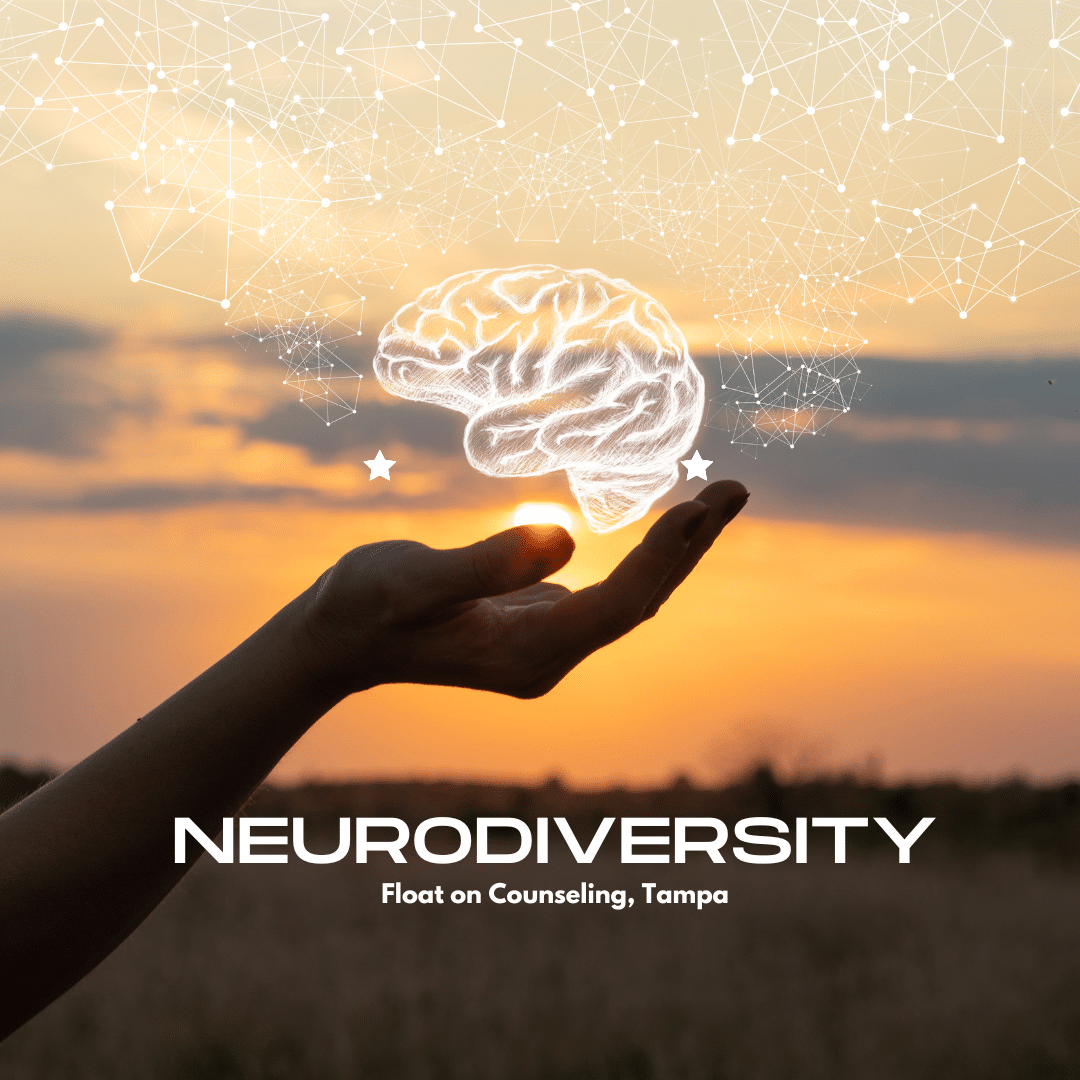Neurodiversity represents a population of people who diverge from the typical way we see others process information. Those who represent the typical information processing are described as “neurotypical.” Those who identify as neurodivergent can include people with ADHD, Autism, dyslexia, dyscalculia, and other neurodevelopmental conditions.
Using the terms “neurotypical” or “neurodivergent” only helps to define where that person is at on a spectrum. Neurodiversity became a popular term in the 1990’s, as sociologist Judy Singer raised awareness to the traits of Autism as being different - not a deficit. Due to this movement, it has helped remove stigma from certain diagnoses so as to not be seen as a mental illness or problem. Therefore, neurodiversity is simply a difference in how these individuals view the world compared to how neurotypical people would.
Recognizing benefits of understanding neurodiversity include awareness in differences between thinking patterns to better understand each other and frame those differences as strengths. Some things that can be done to help support the neurodivergent community is to raise positive awareness in the media, advocate for decreasing stigma and discrimination, help educators understand the alternatives to teaching neurodiverse individuals, and encouraging selfesteem. Since the processing can be different for neurodivergent individuals there is a responsibility to ensure the proper interventions are set in systemic environments. Integrating this kind of neurodiversity informed support in the community will hopefully lead to further acceptance of cognitive diversity.
As both neurodivergent and neurotypical individuals find out that their differences can be seen as real strengths and not disabilities, the idea of neurodiversity has gained popularity. It helps highlight positivity on aspects of the self that have been given a negative connotation in the past or is seen as something that will hinder quality of life. Although symptoms may look similar at times individuals who experience neurodevelopmental conditions and identify as neurodivergent differ from those who have been diagnosed with a mental illness. One does not grow out of a neurodevelopmental condition, whereas the mental health diagnosis has a potential for change. Despite its permanency, with proper support, neurodiverse individuals learn how to use their differences as strengths, adjust where differences aren’t working well for them, and advocate for themselves and others.
It has been said neurodivergent individuals possess certain strengths and traits in the workplace that can make them competitive candidates. In addition to offering a fresh perspective, these individuals are also able to hyperfocus on tasks, contemplate innovative solutions to challenges, and/or possess exceptional ability to recognize patterns and behaviors. As with anyone, some qualities that may feel like weaknesses are the feeling of being different than their peers, inflexibility, social communication difficulties, educational difficulties, issues with executive functioning, and sensory sensitivity.
Individuals are unique and so are their experiences. The symptoms and characteristics discussed are not exhaustive, but a highlight of information to help raise awareness on neurodiversity. If you would like to discuss your experience, contact a counselor that specializes in neurodiversity by checking out the Neurodivergent Therapists directory to find other therapists in your area. Start your journey to embrace your individual strengths and abilities, while also understanding your differences.
This post was written by Alexis Lynch, Registered Mental Health Counselor Intern. Alexis works with children, teenagers, adults, and couples - and helps people with a broad range of issues, to include anxiety disorders, ADHD, and Depression. To schedule a free consultation to see if she might be a good fit for working with you, send us a message or give us a call at 813-515-9602.
Alexis provides virtual and in person services at Float on Counseling in the Carrollwood area of Tampa.


